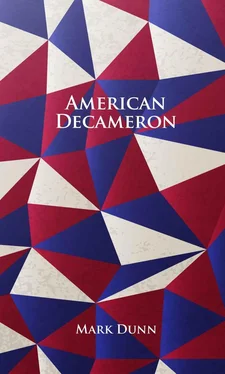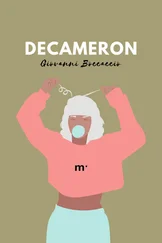In April of that year, the singer Nat King Cole, native of Montgomery, was brutally assaulted in the middle of a concert ninety miles up the road in Birmingham by members of the Northern Alabama White Citizens’ Council.
During the boycott, Patty Sprinkle would on occasion go downtown to shop. The bus was almost always either empty or nearly so. She told people that she liked it that way. She told people that it suited her just fine.
1956 DISCREETLY SILENT IN MONTANA
The deputy sheriff and the emergency room physician had been friends since childhood. Their familiarity with one another often placed them into situations of like-minded understanding, obviating the need for long explanations or even drawn-out disagreement. There were occasions, in fact, in which each man knew exactly what his friend was thinking. This was such a time.
The bodies of two dead teenage boys lay on examining tables at one end of a long corridor, its white walls alternately strobed and obumbrated by two flickering, dying overhead fluorescents. At the other end of the corridor were the boys’ families and friends: two fathers and two mothers, one grandmother, five siblings, four friends, and one solicitous neighbor. It was two-fifteen in the morning and several of those who waited anxiously for word on the boys drank from cardboard cups of coffee. The men smoked. The grandmother prayed. The two youngest children slept curled upon the waiting room divans, their heads resting in mirror symmetry upon their mothers’ laps.
Over the fluorescent tube’s importunate hum, the deputy sheriff said, “When are we—?” He finished his question by jerking his head in the direction of the waiting room.
“I thought we should talk first,” replied the doctor. “You’ll tell me what you and your men saw when they reached the scene?”
The deputy nodded. “We should be on the same page, though, about what the families need to know.”
“Yeah, right.” The doctor pulled a package of Salems from the pocket of his scrubs. The mentholated cigarette was new. “I don’t get all the hoopla,” he said, offering one of the smokes to the lawman. “Tastes exactly like Kool.”
The two men started walking together down the corridor. They passed an empty gurney, then an abandoned candy striper’s hospitality cart. The doctor exchanged nods with a bustling night shift intern.
The doctor led the deputy into a small hospital conference room. Sometimes families were brought into this room to discuss options for the care or, in some cases, the termination of care for their sick or dying loved one. The room was spare, more formally arrayed than the waiting room. It was a place where the families, many of them ranchers from isolated parts of Lewis and Clark County, could think more clearly and less emotionally about what needed to be done. Of course, there was no need to bring the families of the two dead teenagers into this room tonight. There was no decision to be made — only information to be conveyed: that the lives of two young Helena men had ended too soon, had ended in a terrible automobile accident on a darkened highway a few miles east of town.
And yet.
And yet, there was also that other matter.
The lanky deputy sheriff settled himself into a chair. The rock-faced doctor half-sat, half-leaned against the edge of the table a few feet away. The deputy ran his hand through his thick, dark brown hair. He was in his late thirties and the gray had only just begun to sprout at the temples. The doctor, who was only a few months older than the deputy, was still blond, but his hair was thinning. Crow’s feet had begun to form in the outer corners of his eyes, squinting now in the room’s bright unnatural light.
“As you know, both boys arrived DOA,” said the doctor. “Though the Findley kid—”
“Died in the ambulance,” said the deputy, his voice solemn. “We’d hoped that…” His voice trailed off. He shook his head.
“So both were in the car when you got there? Neither of them had been thrown?”
The lawman nodded. “The Findley boy was still behind the wheel. Chest staved in. From the steering column?”
The doctor nodded. “Where was the Robinson boy?”
“On the floor.”
“At the time of impact?”
“My guess: half on, half off the seat. When we found him his head was down by the other boy’s feet.”
“What do you think, Gavin?”
“You want me to say it?”
“I need you to confirm it.”
“I didn’t wipe it all off?”
The doctor shook his head. “Not completely. There was still some residue of semen on the right cheek.”
“But that wasn’t the only thing that would have given it away.”
The doctor scooted off the table. He pulled up a chair, turned it backward and sat down next to the deputy.
“The kid’s pants,” the deputy went on, “the Findley kid’s — they were pulled down to his ankles.”
“The BVDs too?”
The deputy nodded. “Merton and I figure that the wreck could have been attributed to any number of things. All related. The booze, obviously. Diminished attention to the road on the part of the teenager getting fellated. Merton thinks it could also be partly due to the Findley boy’s pants getting tangled up with the accelerator pedal. They were both barefoot, you know. They were coming back from their senior class’s big bonfire at the lake. Neither of the boys had apparently bothered to put his shoes back on.”
The doctor leaned forward in his tipping chair. He rubbed his knuckles absently against the two-a.m. stubble on this chin. He drew in a deep breath as he thought. His lips rounded to blow out the air in slow, measured release. “So what do we say?”
The deputy looked down at the floor. “Whatever we decide, it needs to be the same thing coming from both of us, okay?”
“And Merton too?”
The deputy nodded. “Merton knows what’s going on here.” The deputy closed his eyes. “The families — they don’t have to know. It just adds shit to all their grief.”
“I agree.”
The deputy continued: “The boys had had too much to drink. Two pals went for a drunken joyride and didn’t make it home.”
“So nobody had any idea that they were…?”
“Merton knows Findley — knows him pretty well. He’d never mentioned any suspicions about his son.” The deputy sighed. “Of course, that’s not the kind of thing a father would be all that eager to talk about.”
“You’re right.” The doctor scratched the top of his head. “We’ll never know what the parents know. We’re just going to have to assume that they don’t know anything . That’s usually the way it is, right?”
The two men sat for a moment in the quiet, brightly lit conference room, each processing his own thoughts while waiting for the other to say something that would put the whole matter in a more personal light.
“Some boys grow out of it,” said the deputy, finally.
“Some boys have to,” said the doctor. The doctor came very close to touching the deputy’s hand. The deputy moved his head as if he would shake it, as if he would negate that impulse that the doctor suddenly wished to act upon.
Obligingly, the doctor retracted his hand. The deputy slipped two fingers of his own hand into his jacket pocket and pulled out a small, colorful rectangle of paper. “Merton and I went through the boys’ pockets and their wallets. Didn’t find anything on the Findley kid. But this was on the Robinson boy. In his wallet.”
It was a photograph of Sal Mineo, the actor. It had been carefully cut from a magazine. The size was a perfect fit for a wallet.
“For what it’s worth—” said the deputy.
“Huh?” The doctor was studying the picture.
Читать дальше












